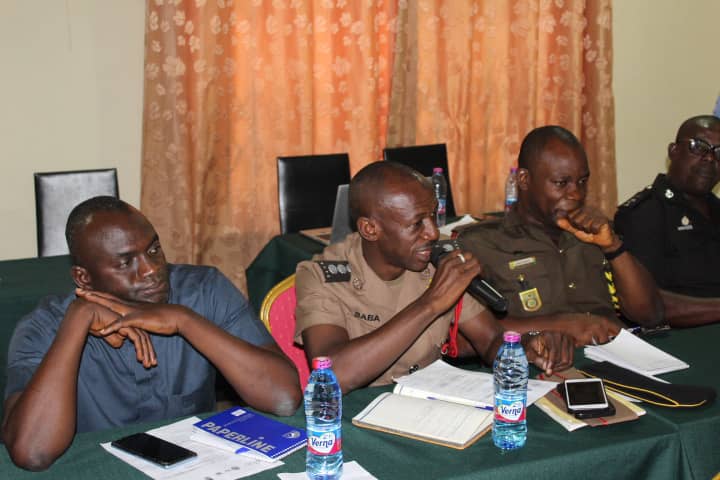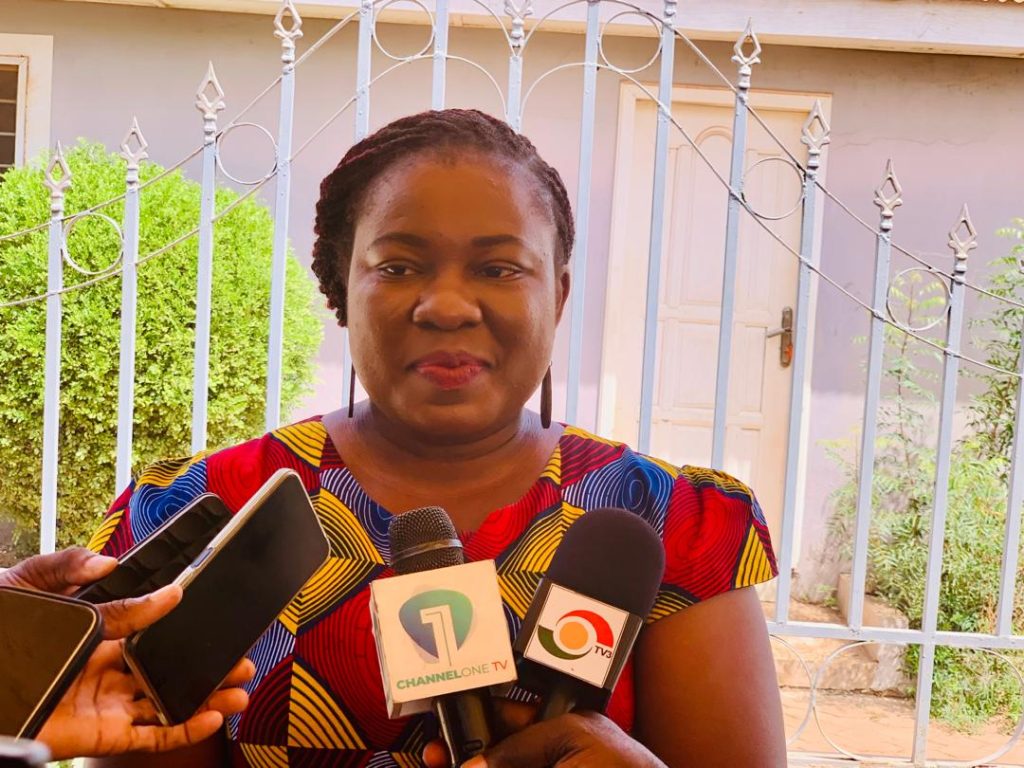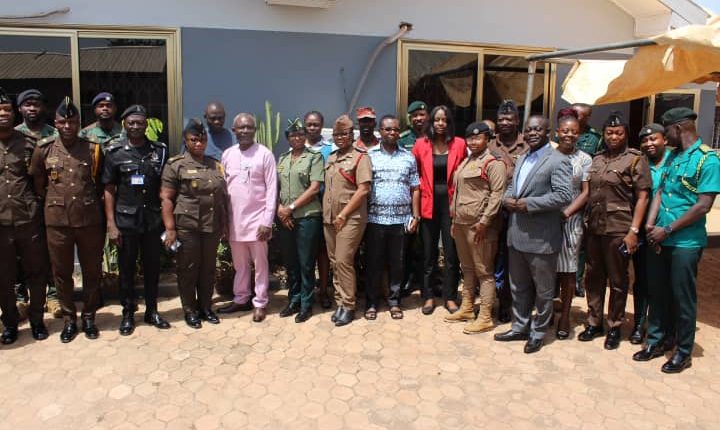National Peace Council trains 30 major security forces officers on violence extremism and mass atrocity crimes
The National Peace Council (NPC) has trained 30 security officers drawn from six major security service in the northern region on violence extremism and mass atrocity crimes.
The training was under the council’s and Catholic Relief Service (CRS) collaborative responsibility to protect (R2P) project funded by the Netherlands ministry of foreign affairs.
In all, 150 security officers were expected to be trained in the two days residential training.
The security forces include the Ghana armed forces, Ghana police service, National Intelligence Bureau (NIB), immigration, fire and prison services.
Security experts from the Kofi Annan International Peace Training Center, Dr David Esinu Yao Normanyo and Mr. Alexander Nartey took the participants through the concept of genocide mass atrocities and prevention and usefulness of UN Framework of analysis for mass atrocity crimes to security sectors actors among others by.

The deputy Director in charge of conflict management at the National Peace Council Frank Wilson Bodza the council has limited training in the past but has been expanded to cover all the five regions of the north, Northern, Upper East, North East Upper West and Savannah Regions.
The peace council he said uses mediation and diplomacy in addressing misunderstandings. The purposes of the training Mr Bodza explained was to build trust and consensus among civilians and security actors in the country.
Youth and peacebuilding program manager at Catholic Relief Services, Alisa Afusah Mogre commended peace council for their continued collaboration and leadership under the Violence Extremism Through Social Accountability ( PoVETSA) II project.
The training, Alisah said seeks to promote inclusive peacebuilding, enhance trust between civilians and security institutions, and prevent violent extremism and terrorism, particularly in Northern Ghana.

The security officers she added will engage with key concepts around the Responsibility to Protect, look at mass atrocity crimes such as genocide, war crimes, and crimes against humanity, and the processes that precede them.
They are expected at the end of the two-days training explore how these global principles can be practically applied in their context, to protect vulnerable populations and ensure our operations uphold the dignity and human rights of every Ghanaian.
Shel told the security officers that partners know their work is not easy and challenges on the ground too are complex. Alisa explained that the training is not to add to their burdens but rather to strengthen their capacity, sharpen the officers’ lens, and affirm their commitment to serve with professionalism, empathy, and accountability.
She revealed that a contextual analysis of PoVETSA phase I and several studies and research points to the broken-down trust relations between civilians and security agencies and recommendations from these studies led to phase II.


